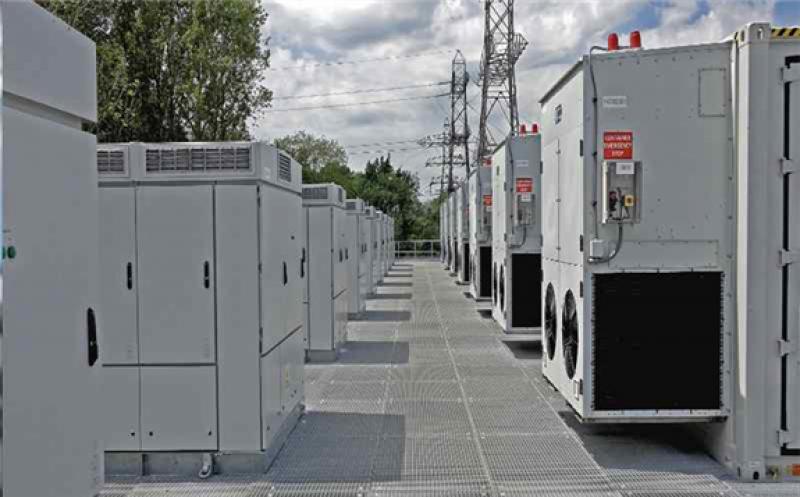The first lithium-ion battery energy storage project to be connected to a transmission network in the UK has been activated.

The project is part of a £41 million ($57.3 million) Energy Superhub Oxford initiative being deployed by technology companies Wartsila and Pivot Power in partnership with EDF Renewables. The 50MW lithium-ion battery energy storage system will provide essential flexibility to cost-effectively integrate more renewables, increase system resilience and future-proof the UK’s electricity network.
The project is demonstrating how integrating distributed energy resources including energy storage, electric vehicle charging, low carbon heating and energy management solutions can help ensure the reliability of Oxford’s grid network with the aim to decarbonise the city by 2040. The battery storage system is connected to National Grid’s high-voltage transmission network via a substation at Cowley. The battery is the first of the 40 battery systems which Pivot Power, the project leader, will be setting live throughout the UK to create the world’s largest hybrid battery, combining lithium-ion and vanadium redox flow systems.
All the 40 projects are expected to be fully operational later this year. The vanadium redox flow battery will be supplied by Invinity Energy Systems for operation by end of the year. The University of Oxford will provide a digital twin for the vanadium redox flow project to validate the performance model of large-scale storage systems.
In addition to the battery storage systems, an 8km private wire network for transport energy from the system to consumer household and EV charging usage. The first of the EV chargers will be the UK’s largest public charging hub at Redbridge Park & Ride, which will feature 38 fast to ultra-rapid chargers when it opens later this year, to kick start Oxford’s EV revolution.
Wärtsilä has provided its battery energy storage optimisation technology to manage energy systems through a broad range of applications. The technology will enable the delivery of different services from frequency regulation to enhanced grid resilience.
Habitat Energy will optimise the battery trading and revenue generation using their AI-enabled PowerIQ platform.
Matt Allen, CEO of Pivot Power, said the project aims to “accelerate the UK towards net zero. We are planning up to 40 similar sites throughout the country, totalling up to 2GW of battery storage – forming a key pillar of EDF’s plan to develop an additional 10GW of battery storage globally by 2035.”
Councillor Tom Hayes, deputy leader and cabinet member for Green Transport and Zero Carbon Oxford, said: “Oxford is at the heart of British efforts to innovate green technologies and home to Energy Superhub Oxford. By integrating EV charging, battery storage, low carbon heating, and smart energy management technologies, Energy Superhub Oxford can save 10,000 tonnes of CO2 every year once opened this year. That’s equivalent to taking over 2,000 polluting cars off the road, increasing to 25,000 tonnes by 2032. We will only build back greener and protect our planet if we come together to take action, and Energy Superhub Oxford is a fantastic example of collective climate action.”